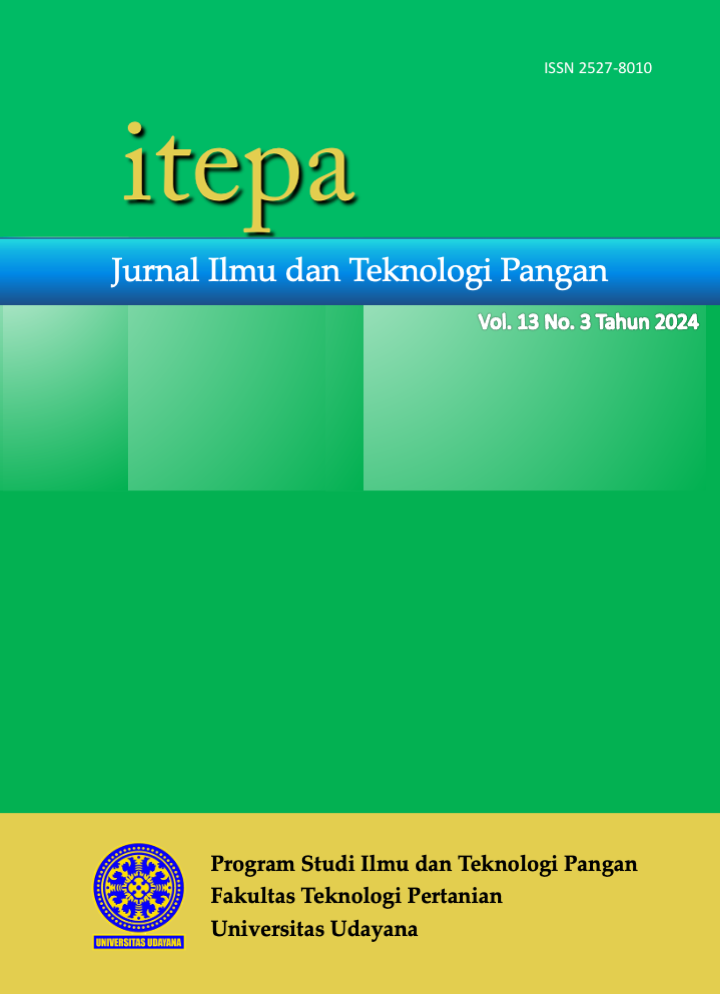Optimasi Yeast Extract pada Media Halal untuk Produksi Bubuk Probiotik Lactiplantibacillus plantarum Kita-3
Abstract
Before producing probiotic powder through microencapsulation, probiotic bacteria must be grown on growth media that require nitrogen sources such as peptone and yeast extract to meet nutritional needs during growth. Cork fish waste can potentially be a source of peptone due to its high protein content which is considered a halal ingredient. Yeast extract contains amino acids, peptides, and vitamins that promote the growth of lactic acid bacteria but can increase production costs due to its high price. This study aims to determine the effect of yeast extract concentration in halal media on the growth and cell count of Lactiplantibacillus plantarum Kita-3 and to determine the concentration of yeast extract in a halal medium that is most efficient for producing growth and high cell count of Lactiplantibacillus plantarum Kita-3. This study utilized a Randomized Group Design with treatments of yeast extract concentration variance, comprising four levels: yeast extract at 0.5 percent, yeast extract at 1 percent, yeast extract at 1.5 percent, and yeast extract at 2 percent (control). Each treatment was replicated twice, resulting in eight experimental units. Data on pH, growth curve, and final powder weight were analyzed descriptively while total LAB data were analyzed using the Kruskal-Wallis non-parametric statistical test. The results indicated that the yeast extract concentration in halal media did not significantly affect (p>0.05) the growth and number of cells of Lactiplantibacillus plantarum Kita-3. The most efficient concentration of yeast extract in halal media to produce high growth and cell count was obtained from halal media with a yeast extract concentration of 0.5 percent, resulting in a total LAB value at the beginning of incubation of 6.69 log CFU/mL, which increased to 9.32 log CFU/mL at the end of incubation, and in probiotic powder around 12.13 log CFU/g.





